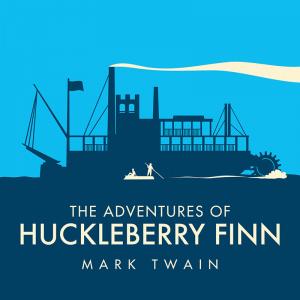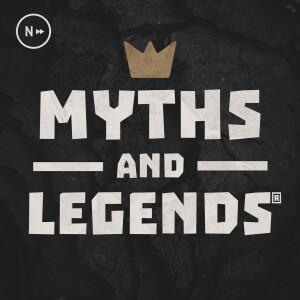
In anticipation of our upcoming sixth annual Literary Life Online Conference, “Dispelling the Myth of Modernity: A Recovery of the Medieval Imagination,” this week we are re-airing a previous episode with Jason Baxter, our conference’s special keynote speaker. Angelina Stanford, Cindy Rollins, and Thomas Banks sit down for a special conversation with Jason Baxter, author of The Medieval Mind of C. S. Lewis. Jason is a speaker, writer, and college professor who writes primarily on medieval thought and is especially interested in Lewis’ ideas. You can find out more about him and his books at JasonMBaxter.com.
Our hosts and Jason discuss a wide range of ideas, including the values of literature, the sacramental view of reality, why it is important to understand medieval thought, the “problem” of paganism in Lewis’ writings, and how to approach reading ancient and medieval literature.
Commonplace Quotes:My part has been merely that of Walter Scott’s Old Mortality, who busied himself in clearing the moss, and bringing back to light the words, on the gravestones of the dead who seemed to him to have served humanity. This needs to be done and redone, generation after generation, in a world where there persists always a strong tendency to read newer writers, not because they are better, but because they are newer. The moss grows fast, and ceaselessly.
F. L. LucasIt is the memory of time that makes us old; remembering eternity makes us young again.
Statford CaldecottIt is my settled conviction that in order to read old Western literature aright, you must suspend most of the responses and unlearn most of the habits you have acquired in reading modern literature.
C. S. Lewis, from “De Descriptione Temporum”What then is the good of–what is even the defense for–occupying our hearts with stories of what never happened and entering vicariously into feeling which we should try to avoid in our own person?…The nearest I have yet got to an answer is that we seek an enlargement of our being. We want to be more than ourselves…[In] reading great literature I become a thousand men and yet remain myself. Like the night sky in the Greek poem, I see with myriad eyes, but it is still I who see. Here as in worship, in love, in moral action, and in knowing, I transcend myself; and am never more myself than when I do.
C. S. Lewis Victoryby C. S. Lewis
Roland is dead, Cuchulain’s crest is low,
The battered war-rear wastes and turns to rust,
And Helen’s eyes and Iseult’s lips are dust
And dust the shoulders and the breasts of snow.
The faerie people from our woods are gone,
No Dryads have I found in all our trees,
No Triton blows his horn about our seas
And Arthur sleeps far hence in Avalon.
The ancient songs they wither as the grass
And waste as doth a garment waxen old,
All poets have been fools who thought to mould
A monument more durable than brass.
For these decay: but not for that decays
The yearning, high, rebellious spirit of man
That never rested yet since life began
From striving with red Nature and her ways.
Now in the filth of war, the baresark shout
Of battle, it is vexed. And yet so oft
Out of the deeps, of old, it rose aloft
That they who watch the ages may not doubt.
Though often bruised, oft broken by the rod,
Yet, like the phoenix, from each fiery bed
Higher the stricken spirit lifts its head
And higher-till the beast become a god.
Beauty in the Word by Stratford Caldecott
An Experiment in Criticism by C. S. Lewis
The Discarded Image by C. S. Lewis
The Art of Living: Four Eighteenth Century Minds by F. L. Lucas
Transposition by C. S. Lewis
The Weight of Glory by C. S. Lewis
Til We Have Faces by C. S. Lewis
The Divine Comedy by Dante
Nicholas of Cusa
The Life of St. Francis of Assisi by St. Bonaventure
The Consolation of Philosophy by Boethius
Confessions by St. Augustine
Support The Literary Life:Become a patron of The Literary Life podcast as part of the “Friends and Fellows Community” on Patreon, and get some amazing bonus content! Thanks for your support!
Connect with Us:You can find Angelina and Thomas at HouseofHumaneLetters.com, on Instagram @angelinastanford, and on Facebook at www.facebook.com/ANGStanford/
Follow The Literary Life on Instagram, and jump into our private Facebook group, The Literary Life Discussion Group, and let’s get the book talk going! http://bit.ly/literarylifeFB
More Episodes
Episode 150: “Dracula” by Bram Stoker, Ch. 18-End
 2022-12-06
2022-12-06
Episode 149: “Dracula” by Bram Stoker, Ch. 12-17
 2022-11-22
2022-11-22
Episode 148: “Dracula” by Bram Stoker, Ch. 8-11
 2022-11-15
2022-11-15
Episode 147: “Dracula” by Bram Stoker, Ch. 3-7
 2022-11-08
2022-11-08
Episode 146: Introduction to “Dracula” by Bram Stoker, Ch. 1 & 2
 2022-11-01
2022-11-01
Episode 145: The Medieval Mind of C. S. Lewis: A Conversation with Jason M. Baxter
 2022-10-18
2022-10-18
Episode 144: “Hard Times” by Charles Dickens, Bk. 3, Ch. 4-End
 2022-10-11
2022-10-11
Episode 143: “Hard Times” by Charles Dickens, Bk. 3, Ch. 1-3
 2022-10-04
2022-10-04
Episode 142: “Hard Times” by Charles Dickens, Book 2, Ch. 6-9
 2022-09-27
2022-09-27
Episode 141: “Hard Times” by Charles Dickens, Book 2, Ch. 1-5
 2022-09-20
2022-09-20
Episode 140: “Hard Times” by Charles Dickens, Book 1, Ch. 11-16
 2022-09-13
2022-09-13
Episode 139: “Hard Times” by Charles Dickens, Bk. 1, Ch. 1-10
 2022-09-06
2022-09-06
Episode 138: In Search of the Austen Adaptation: Sense and Sensibility
 2022-08-02
2022-08-02
Episode 137: Why Pastors Should Read Fiction
 2022-07-26
2022-07-26
Episode 136: Two for ’22 Reading Challenge Check-In
 2022-07-19
2022-07-19
Episode 135: The Literary Life of Jone Rose
 2022-07-12
2022-07-12
Episode 134: “The Wind in the Willows” by Kenneth Grahame, Part 4
 2022-06-07
2022-06-07
Episode 133: “The Wind in the Willows” by Kenneth Grahame, Part 3
 2022-05-31
2022-05-31
Episode 132: “The Wind in the Willows” by Kenneth Grahame, Part 2
 2022-05-24
2022-05-24
Episode 131: “The Wind in the Willows” by Kenneth Grahame, Part 1
 2022-05-17
2022-05-17
Create your
podcast in
minutes
- Full-featured podcast site
- Unlimited storage and bandwidth
- Comprehensive podcast stats
- Distribute to Apple Podcasts, Spotify, and more
- Make money with your podcast
It is Free
You may also like

Voice of Mushfik


Lit Society: Books and Drama


Ex Libris


The Adventures of Huckleberry Finn


The Adventures of Sherlock Holmes


Fresh Air


Myths and Legends


- Privacy Policy
- Cookie Policy
- Terms of Use
- Consent Preferences
- Copyright © 2015-2024 Podbean.com


 iOS
iOS Android
Android